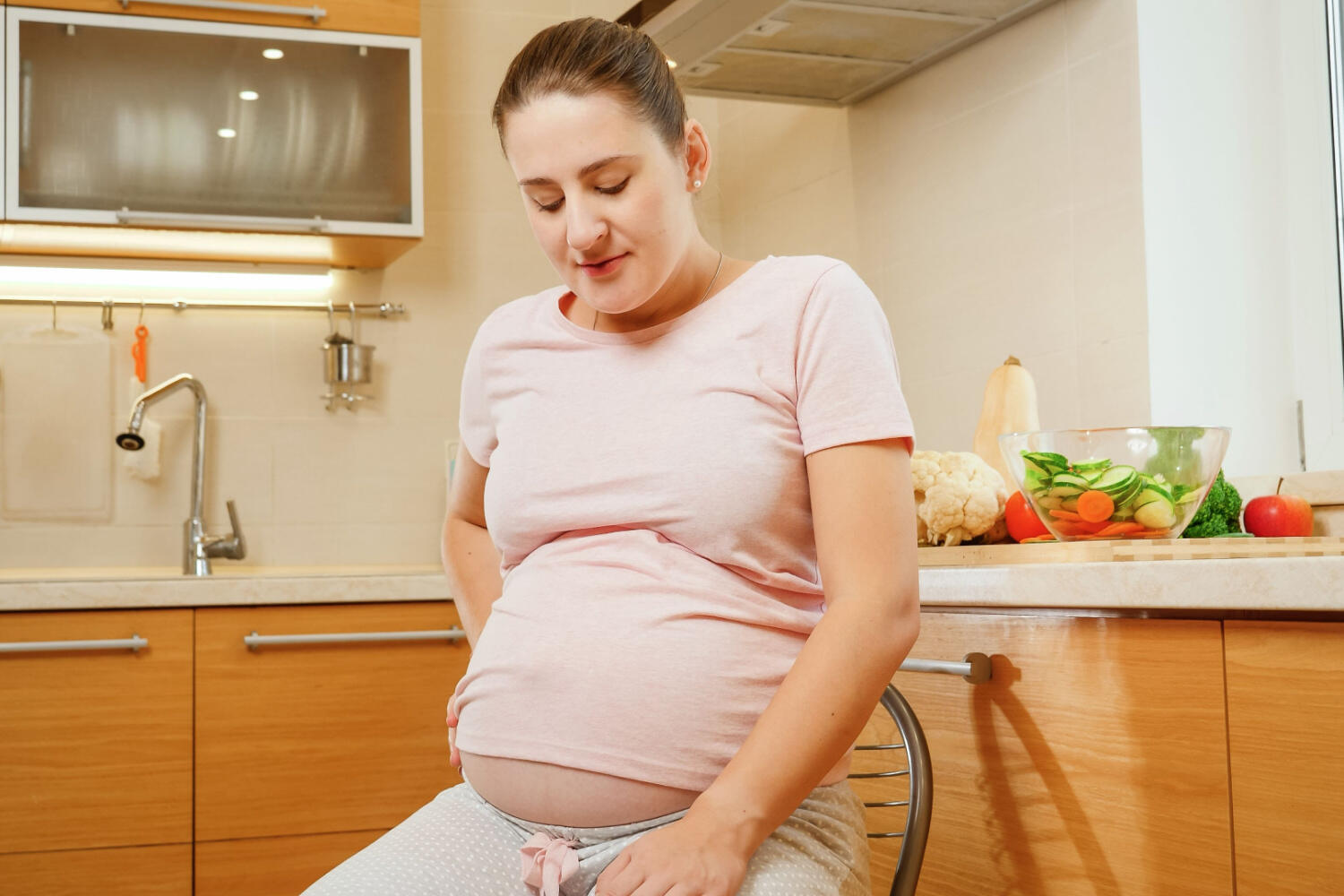
Vitamin-D During Pregnancy
5 min readWritten by Editorial Team


Vitamin D is found to play a crucial role in maintaining bone health and strengthening them. Vitamin D provides calcium, which is required for bone development and the strong teeth of your baby. Skeletal deformities and insufficient growth can be observed in babies whose mothers suffer from deficiency of Vitamin-D during pregnancy. It also regulates certain receptors, which are necessary for maintaining immunity. Many kinds of research have been made on the subject of Vitamin-D and pregnancy.
Studies have shown that Vitamin-D may play a very important role in preventing birth complications such as pre-eclampsia, gestational diabetes, and a higher risk of having a C-section. Also, its intake in recommended dose will do only good. The compounds D2 and D3 are most relevant for pregnancy for the healthy development of the fetus and the well-being of the mother. Read below to know more about Vitamin D during pregnancy.
In This Article
- Why Do I Need Vitamin D In Pregnancy?
- Am I At A Risk Of Vitamin-D Deficiency?
- How Much Vitamin-D Do You Need For Pregnancy?
- Sunlight During Pregnancy For Vitamin-D
- Food Sources Of Vitamin-D
- Vitamin-D Supplements In Pregnancy
- Adverse Effects Of Deficiency Of Vitamin-D In Fetus
- Impact of Vitamin D deficiency During Pregnancy
Why Do I Need Vitamin D In Pregnancy?
The low levels of Vitamin-D serum in blood during pregnancy not only predispose you to a variety of unpleasant conditions such as diabetes but also threaten the future health of your baby. Since you are the sole source of providing essential vitamins, minerals, and nutrition to the baby, a lack of Vitamin-D in your blood will cause a lack of Vitamin-D in your baby too.
There are studies that have linked a deficiency of Vitamin-D in a fetus with a decreased bone mass of the baby, weakened or even deformed bones, and increased chances of fractures in later life. Research supports the role of Vitamin-D in maintaining bone health, enhancing immune function, and the absorption of calcium by the body.
Proper Vitamin-D intake during pregnancy will not only protect your baby’s bone health but also helps the mother in the following ways:
- Increases immunity – helps fight infection
- Increases absorption of calcium and phosphorous in the intestine. Otherwise, the calcium from bones and teeth will continue to be eroded
Insufficient Vitamin-D intake will render you more susceptible to certain cancers, auto-immune disorders, and cardiovascular diseases.
Am I At A Risk Of Vitamin-D Deficiency?

Yes, if you are overweight or have a BMI greater than 30, or have intestinal malabsorption diseases are at risk of having Vitamin-D deficiency as the body does not absorb the vitamin in the blood. Medicines that are used to treat seizures, cholesterol, or that are used as steroids also increase your chances of having a Vitamin-D deficiency.
People who stay indoors or do not get much direct sun are also at risk of developing a vitamin-D deficiency. Even in a tropical country like India, about 70% population suffers from a deficiency of Vitamin D.
How Much Vitamin D Do You Need For Pregnancy?
About 10 mcg of Vitamin-D is suggested during pregnancy, although the dosage is still a matter of debate. The widely recommended usual supplements contain about 400 IU (i.e. 10 mcg) of Vitamin D.
However, up to 4000 IU of Vitamin-D is found to reduce birth defects and infections and is considered safe, though most health groups recommend not taking more than 2,000 IU of the vitamin in supplement form daily. About half an hour of sunlight may provide up to 50000 iu.
Sunlight During Pregnancy For Vitamin-D

Sunlight is the perfect source of Vitamin-D, but some experts do not recommend staying in the sun for a longer duration without sunblock and covering. This is because pregnancy causes skin pigmentation, and exposure to the sun may just intensify the darkening of the skin.
Just about 15-20 minutes of sunshine on the head, face, arms, without sunscreen is recommended during summers and this should help you in winters as well. However, exercise caution not to burn your skin or let it turn red. If it is winter, you might have to get yourself tested and arrive on whether or not you need vitamin-d supplements.
Food Sources Of Vitamin-D
The Vitamin-D supply is relatively sparse through foodstuffs, however, pregnant mums can naturally supplement their diet by including the following items in their meals:
- Try using extra virgin olive oil
- Egg yolks
- Milk – you even get those fortified with Vitamin-D
- Salmon, mackerel, sardines
- Cod liver oil
- Red meat – but restrict its consumption
- Breakfast cereals – opt for those fortified with Vitamin-D
- Yogurt
- Almonds
- Chicken
- Orange juice
- Soy milk
- Tofu
- Beans
Vitamin-D Supplements In Pregnancy

Since food alone may not fulfill the required dose of Vitamin D and if it’s not possible to obtain sunshine (say in winters), then supplements may be considered. The Vitamin-D supplement during pregnancy is generally safe. 10 mcg of Vitamin-D daily is recommended for pregnant women.
However, since darkly pigmented women are more prone to Vitamin-D deficiency, your obstetrician may recommend a higher dose of Vitamin-D supplement for you. Also, considering your other vitals and pre-existing conditions, your required daily dose of Vitamin D may vary.
Make sure that you take the test for Vitamin-D deficiency first. After getting the result, look for supplements that are labeled Vitamin-D3, or cholecalciferol, which is the most effective form. Remember, it’s not a good idea to self-administrate any form of drugs during pregnancy.
Adverse Effects Of Deficiency Of Vitamin-D In Fetus

If your body does not receive sufficient Vitamin D, it may harm both the unborn baby and the expecting mother. Your baby is more likely to develop the following conditions due to a lack of Vitamin D:
- Rickets
- Hypocalcemia
- Glucose intolerance
- Low birth weight: baby weight lowers by 200 g
- Impaired growth
- Wheezing
- Asthma
Vitamin D deficiency can be pretty subtle, and you may not even notice the same. Muscles that ache frequently, weakness, soft bones leading to fractures, etc., are some subtle symptoms.
Impact of Vitamin D deficiency During Pregnancy
If your body does not receive sufficient Vitamin D during pregnancy, there is an increased risk of,
- Preeclampsia
- Hypertension
- Diabetes – which can cause pregnancy complications
- Bacterial vaginosis
- Increased rate of c section
The good news is, we can prevent the risks of vitamin D deficiency. All it takes is to make up your mind, go out in the fresh air and exercise a bit! A little bit of sunshine is all it takes – for better health and a healthy baby!

Editorial Team,
With a rich experience in pregnancy and parenting, our team of experts create insightful, well-curated, and easy-to-read content for our to-be-parents and parents at all stages of parenting.Read more.
Responses (0)
Want curated content sharply tailored for your exact stage of parenting?
Related articles

Back Labor Pain – What is it, How to Prevent and Tips to Relieve

Empowering Expectant Mothers: Guidelines for Progesterone Cessation

500 Popular Telugu Baby Girl Names With Meaning

Butterfly Exercise For Pregnancy to Improve Your Health – Is it Safe

Cakes During Pregnancy – Is it safe?

Top 200 Baby Names Starting With Cal
Sponsored content
Discover great local businesses around you for your kids.
Get regular updates, great recommendations and other right stuff at the right time.





